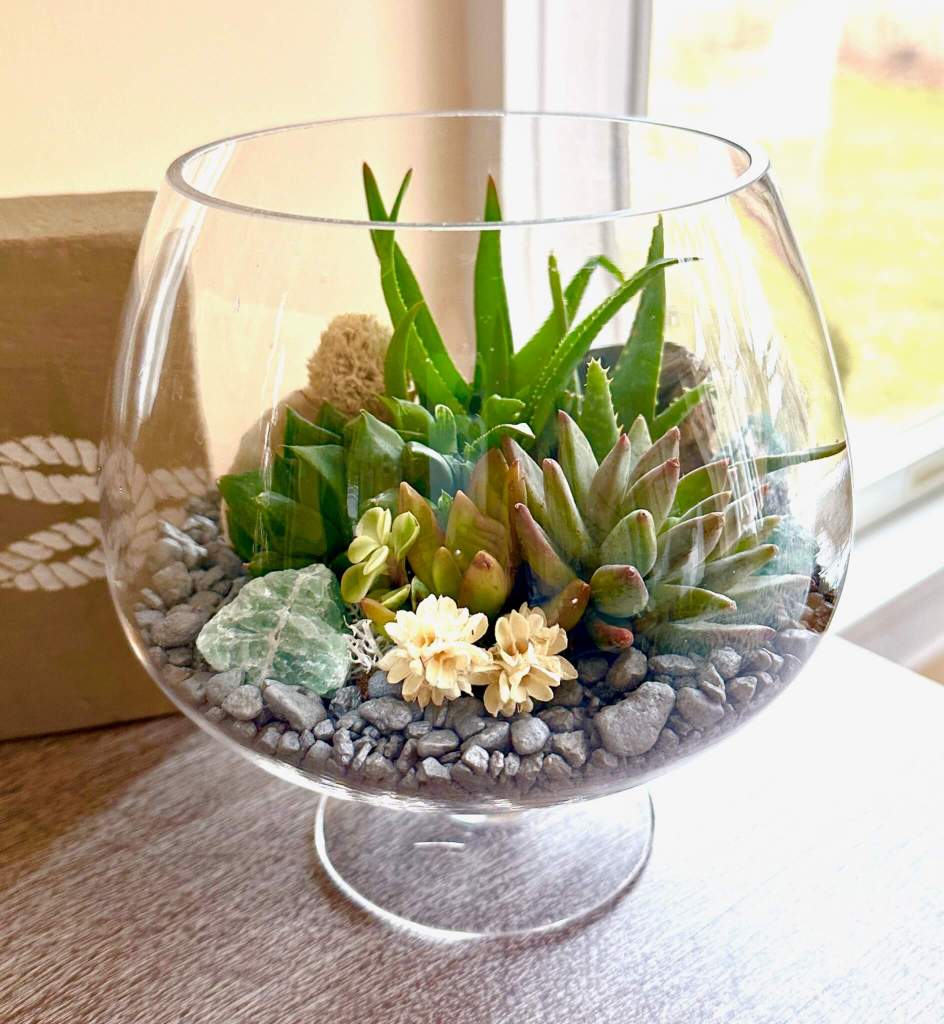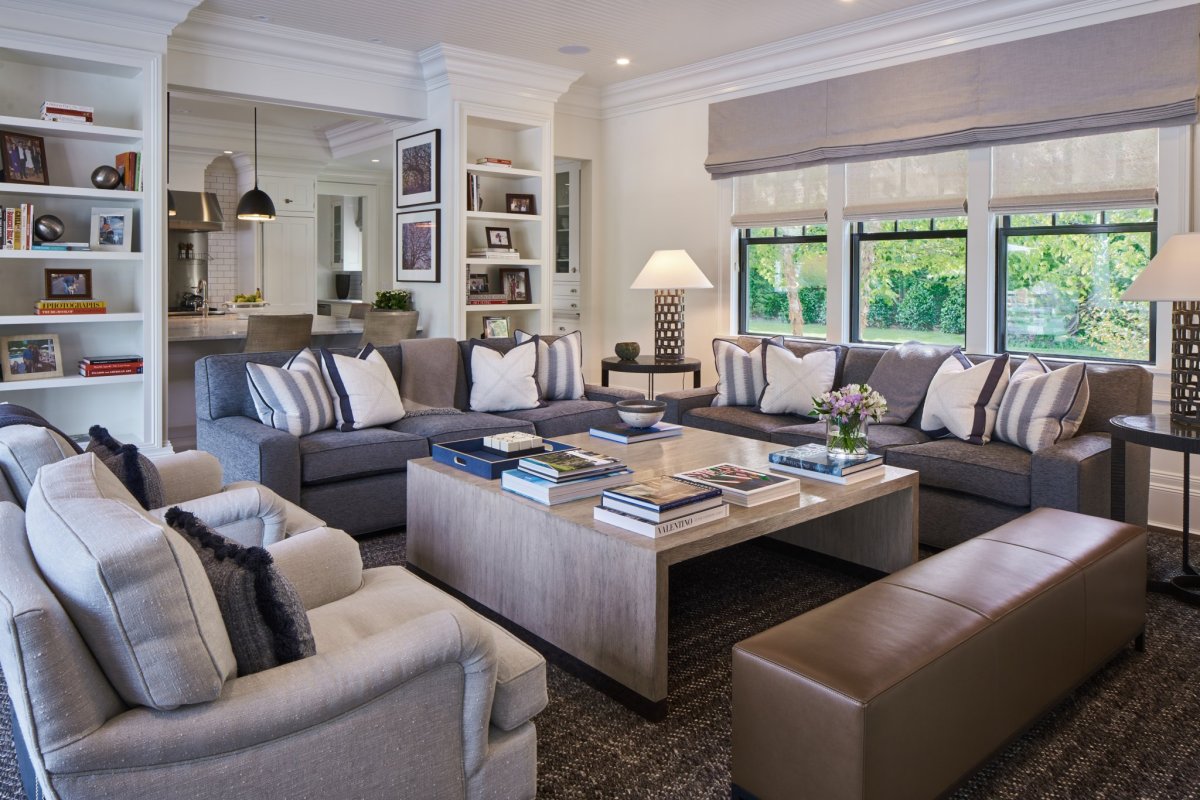Plant stylist Elissa Capetanakis will tell you that she’d like people to appreciate her terrarium designs not only for their beauty, but also for their ability to invoke feelings of serenity.
“I create little worlds under glass,” she explains. “I make these almost park-like settings. You want to go in there and just hide from everybody. It’s a very peaceful environment. That’s my vibe.”
Capetanakis, who in one of her former jobs was a health and wellness director for American Express in Manhattan, points out that finding moments of serenity became more important than ever during the COVID era.
“A lot of people became plant people during the pandemic,” she says. “They were home a lot more, and they wanted to bring in a sense of calm—and that’s what plants do.”
Imaginariums by Elissa, Capetanakis’s company, was already well established when the pandemic began. She had been conducting plant design workshops and special events and selling her creations online and out of her home studios in Easton, Connecticut, and Mattituck on the North Fork. Her work had also begun to garner a following through her relationship with Ally Bally Bee, an artist’s co-op with locations in New Canaan and Ridgefield, Connecticut.
Then came March 2020.
“During the pandemic, I was forced to leave the co-op, but I found myself in a unique position,” she recalls. “I was designing and creating arrangements and offering contactless porch-side pick-ups from my studios. It was incredibly rewarding to me to know that I could bring a little bit of joy to people
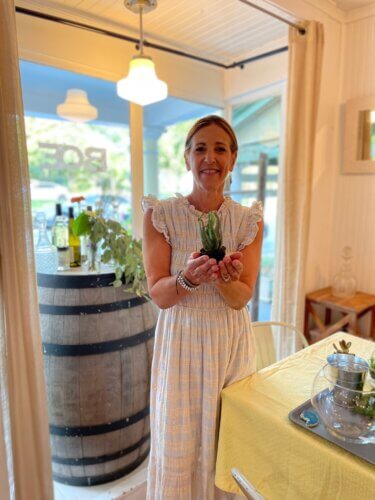
A terrarium design with low-light succulents, preserved florals and aquamarine stones created by Imaginariums by Elissa.
An arrangement of Portulacaria, also known as Elephant Bush, driftwood, air plants, Aloe and rassula during such a tough time.”
Capetanakis defines herself not only as a plant stylist, but also as a visual storyteller. Plants just happen to be her storytelling medium. While her terrariums are definitely a specialty, she also de-
signs tablescapes and floral arrangements of every imaginable kind, including seasonal outdoor container gardens.
She’s also currently working on creating the arrangements for the first wedding she’s ever done.
“I’m in a slight panic about the wedding,” she says, a comment that’s a little surprising coming from a person who registers as extremely centered and chilled out. “It’s very much not your typical floral arrangement on the table. I’m doing driftwood succulents and air plants. It should be a lot of fun.”
A self-taught designer, Capetanakis likes to do with plants what many typical stylists do with flowers.
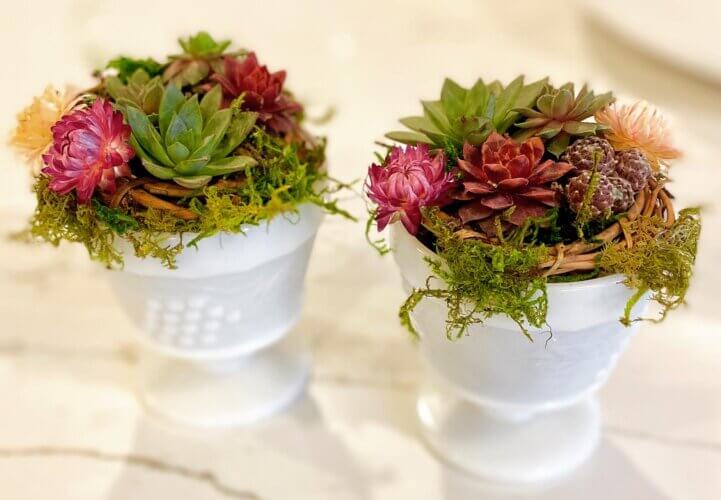
“I’ll try to mimic a floral arrangement, but I’m not using flowers because, sadly, they die so fast,” she explains. “I’m using plants, but I’m trying to create that same aura that you might get if somebody handed you a floral arrangement. I’m not just giving you a succulent in a pot like you might see at a supermarket or Home Depot. I’m trying to bridge it and combine it with plants that have the same needs so that the arrangement will thrive for a long time.”
Capetanakis, who often incorporates stones and shells from local North Fork beaches into her designs, notes that she doesn’t necessarily have a favorite plant.
“Each plant and flower has its own value and its own vibe and its own feeling,” she says.
Her clients, on the other hand, tend to favor certain plant varieties. And survivability is almost always a key consideration.
“I definitely have the most success with succulents,” Capetanakis says, “They’re in vogue, everybody loves them and they’re really easy to take care of. People will say to me, ‘I kill everything I touch,’ and my job is to promise them they’re not gonna kill this arrangement. Succulents thrive on neglect. People love to hear that.”
One of the most popular aspects of Capetanakis’s business is her workshops, where she teaches small groups the finer points of plant styling. She has continued to forge relationships with a number of North Fork wineries and venues, creating a series of “Sip and Succulent” events.
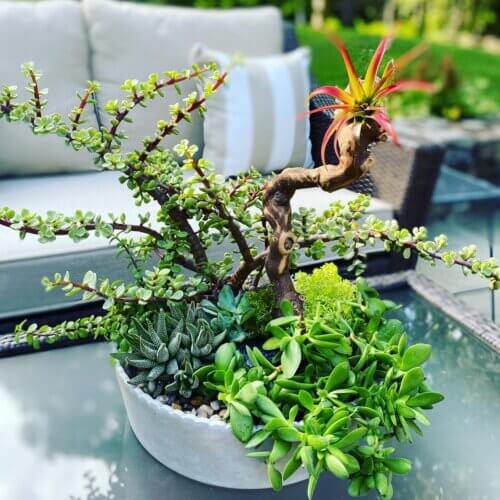
Over the past year alone, she has run workshops at Suhru Wines in Cutchogue, Chronicle Wines in Peconic, Lenz Winery in Cutchogue, the 1760 Homestead Farm in Riverhead and Beds & Borders in Laurel. At presstime, she had an upcoming workshop scheduled for May 21 at the Peconic River Herb Farm in Calverton. She also accepts bookings for private events.
“I’ve been so fortunate to be able to tap into the wineries on the North Fork,” Capetanakis says. Working with them lets me teach my craft while making it more of an experience, more of a real night out. I’m not just sitting at a kitchen table and saying, ‘put this here and put that there.’”
As Capetanakis’s business expands on the North Fork, primarily via social media and word of mouth, she finds herself spending more and more time at her home in Mattituck. She estimates that she now lives in Mattituck about 40% of the time, as opposed to spending only about 25% of her time there only a few years ago.
“I’m working to become more known and further develop a clientele on the North Fork,” she says. “It’s really hard to let people know you’re out here do- ing this when they’re not walking by a storefront and seeing you. Thank God for Facebook and Instagram.”
As she commits more of her time and resources to her business on the North Fork, Capetanakis faces the inevitable expansion questions that eventually challenge all successful entrepreneurs.
“I vacillate on this,” she admits. “Part of me would love to have a brick and mortar store. But as much as that’s my dream, I ask myself, ‘At this point in my life, do I really want to be a slave to a retail store?’ I don’t know. Maybe if I could just have a little storefront with a sign that said ‘by appointment only,’ I’d be really happy.”
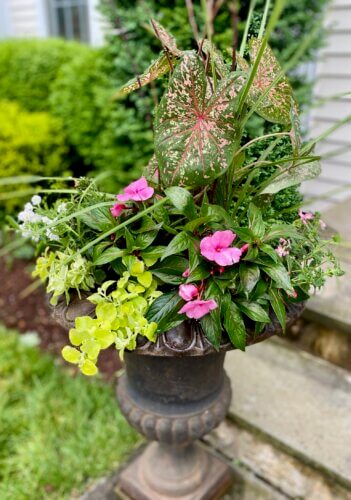
This article appeared in the May edition of Behind The Hedges. Read the full issue here. For more Master Craftsman columns, click here.

